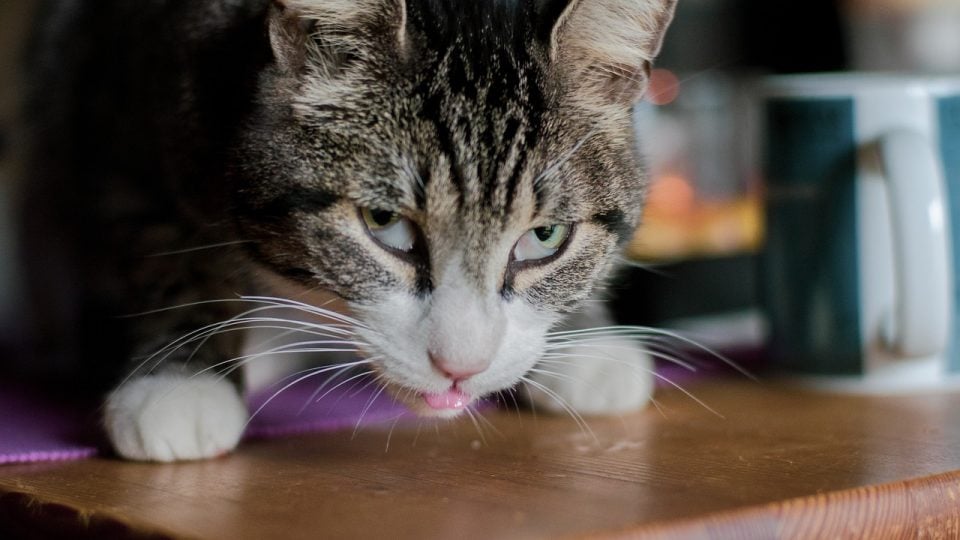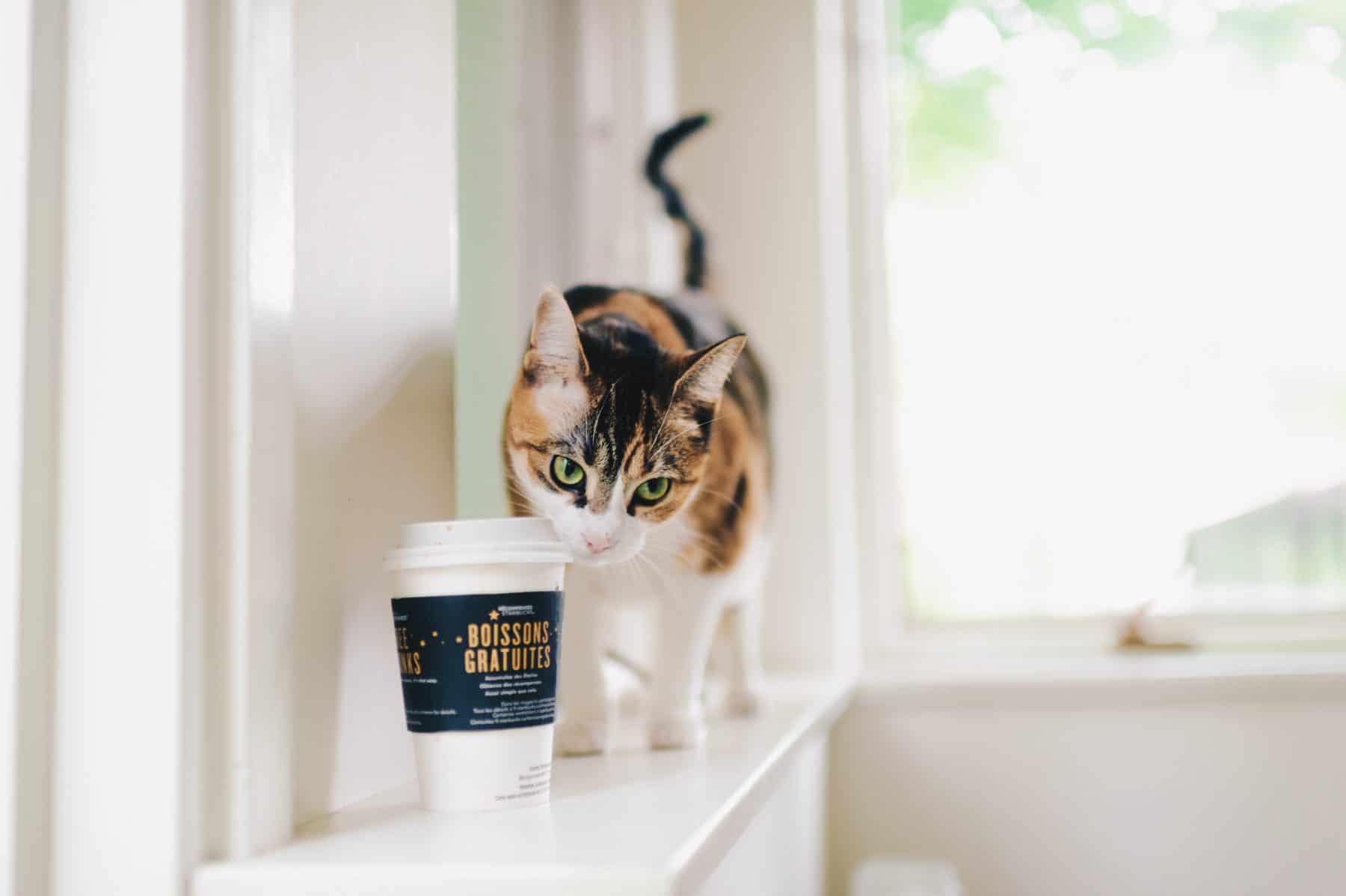- Not a substitute for professional veterinary help.
Between Greek, traditional or non-fat, yogurt has been our go-to for a filling breakfast, an aide in digestion, and frankly a delicious light addition to our diets. A lot of humans really love yogurt. But will our cat friends like it, too?
On TV, cats are always fed a saucer of milk as a go-to snack, but are milk products healthy for domesticated cats in real life? Though some lactose-intolerant people can eat yogurt, cats have carnivorous digestive systems. Sometimes “human foods” can cause serious issues in cats that may have long term effects.
If your cat tends to eye your yogurt spoon with interest, here’s what you need to know about whether cats can eat yogurt.
Health Benefits of Yogurt
Interestingly, due to the fermentation process of yogurt, yogurt is filled with nutrients beyond just the milk that it is made from. For humans, one cup of yogurt provides nearly half of your calcium and plenty of protein for the day.
At 12 grams of protein per seven ounces, many people eat yogurt as a way to help manage hunger throughout the day, as protein is tied to appetite regulation.
One of the most impressive parts of yogurt make up is the cultures that are created during the fermenting process. The live bacteria or probiotics have been incredible in helping with irritable bowel syndrome (IBS), bloating, and a myriad of other digestive issues.
Yogurt is also high in phosphorus, magnesium, potassium and B vitamins. B12 and riboflavin are known to help with generating red blood cells, building strong bones, stabilizing moods, and giving a boost of energy.
Can Cats Eat Yogurt?
The short answer is: Maybe. Many animals do not possess lactase, an enzyme that breaks down lactose. Due to this, dairy-based products can cause stomach issues in both dogs and cats. Interestingly, when cats are young they do process lactose while they are drinking their mother’s milk, but as they get older that process is not necessary anymore and they lose the lactase over time.
Because yogurt has a lower lactose count, cats can theoretically have a lick or two, but it isn’t recommended. The most common symptoms of lactose intolerance include:
- diarrhea
- vomiting
- loss of appetite and weight
- abdominal pain and discomfort
- increased scratching
- lethargy
However, there are some cats that can tolerate dairy products just fine. Experts suggest testing lactose intolerance levels by giving your cat a small amount and see if they have a reaction within the day. If they don’t exhibit any symptoms within 24 hours, an occasional dairy treat is okay, but it’s still not recommended as something to give frequently. Cats simply don’t need it as part of their natural diet.
Can Cats Drink Milk?
Milk has more lactose than yogurt. Due to this, pet parents should be wary of giving their cats milk, as it has that much more chance to cause an upset stomach. Most milk we buy in the grocery store is not suitable for domesticated cats.
In fact, because of its iffy lactose-filled nature, milk products are on the ASPCA list of foods to avoid feeding your pets.
Alternative Healthy Snacks
If you’re looking for something to spice up your cat’s daily diet, there are a wide variety of human foods that cats enjoy that don’t wreak havoc on their digestive systems like yogurt might. Here’s a list of foods that are safe for cats to eat according to PetMD.
- Plain and thoroughly cooked ham, beef or turkey
- Some whole grains like brown rice or barley
- Zucchini
- Celery (they love the crunch!)
- Carrots
- Scrambled eggs
- Green bell peppers
- Spinach (Filled with vitamins A, C, and K!)
- Peas (Often found in many prepackaged foods for cats and dogs as a vitamin-filled addition)
- Pumpkin (Pumpkin is used often as a way to get fiber in your cat’s diet)
- Broccoli
Before going treat heavy, however, experts suggest that treats—even protein-filled ones—should only take up 10-15% of their daily diet.
If you want your cat to try something new, introduce them to it sparingly. Cats are generally cautious when trying new things, and often like to stick to routines. More importantly, having full meals replaced from their regular diet and they’ll miss out on vital nutrients of properly formulated cat food.
“The large majority of what cats eat should be a balanced diet,” Gary Richter, DVM, owner and medical director of Montclair Veterinary Hospital in Oakland, California and Holistic Veterinary Care tells Rover. “In general, treats are not balanced and should not make up a significant portion of their daily intake.”
In other words, keep the yogurt to a minimum, and keep your cat happy by just adding in an occasional treat while maintaining their regular food schedule. Happy eating!




